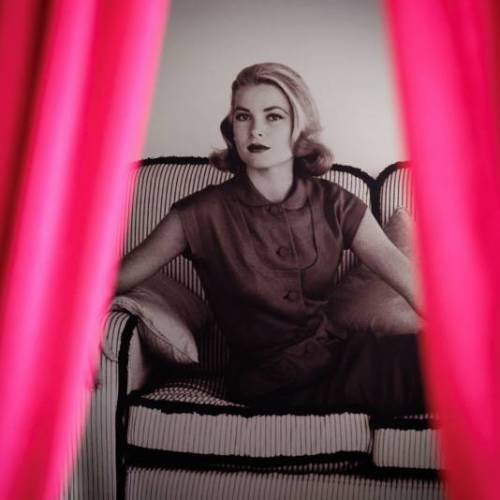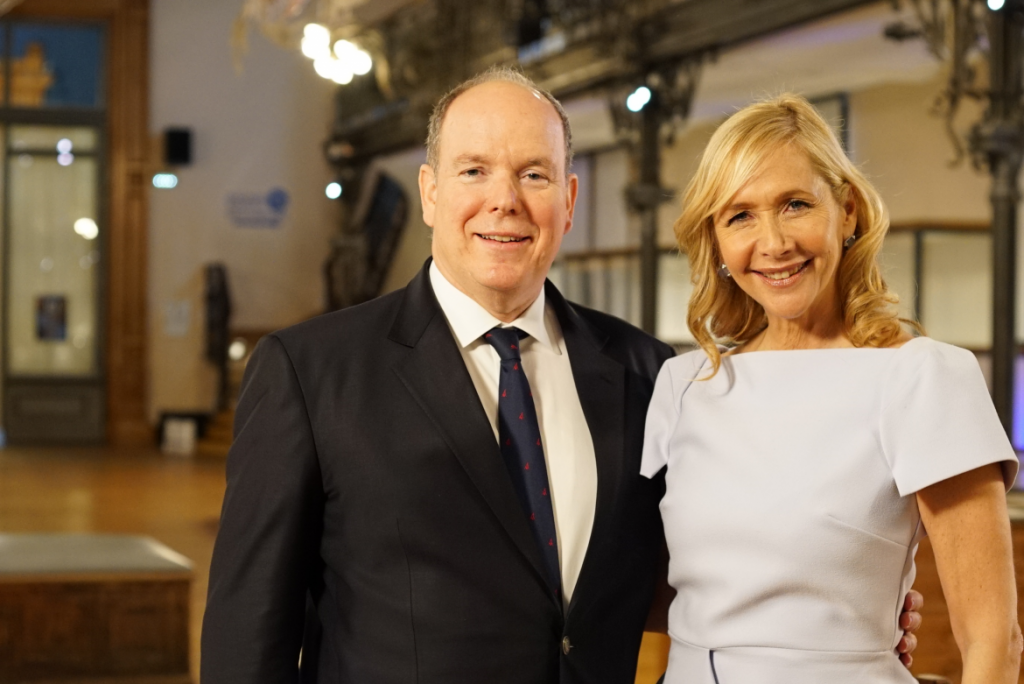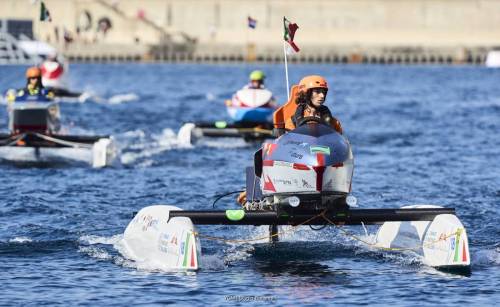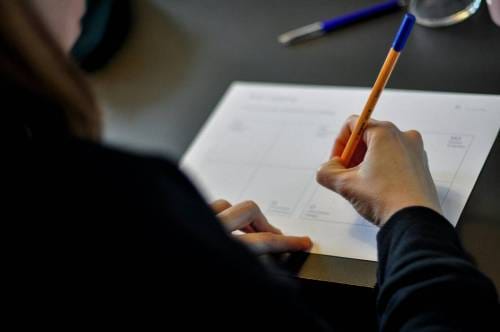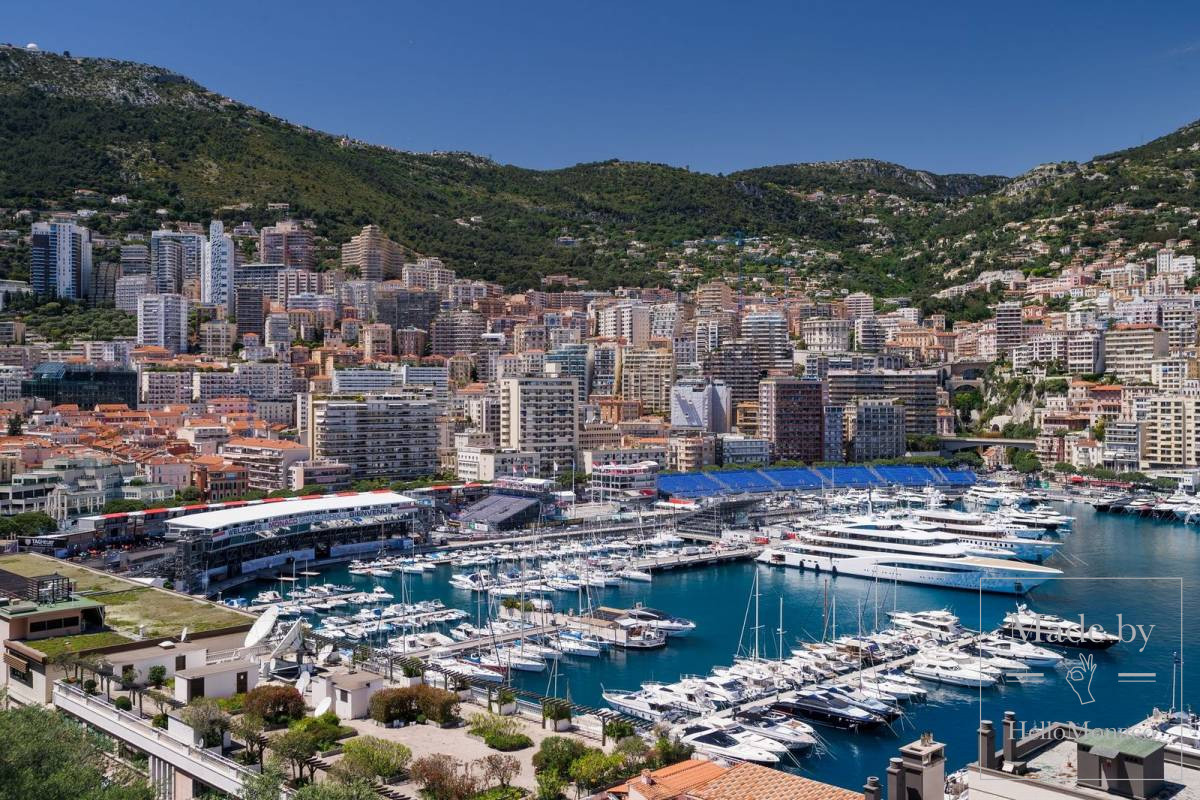In his exclusive interview for the CNBC channel with Tania Bryer, H.S.H. Prince Albert II of Monaco shared his thoughts on the biggest threat to the ocean, on the impact of his great, great grandfather’s legacy and those values that his parents instilled in him, as well as shared his hopes for the future and for his own legacy.
TB: Your Serene Highness, thank you so much for joining me today.
PA: It’s a great pleasure.
TB: And of course we’re here in the magnificent Oceanographic Museum in Monaco, and you’re hosting the Monaco Blue Initiative. Tell me why it’s so important for you and for your foundation.
PA: The global ocean is facing a crisis of unprecedented nature, and we need to find new solutions not only for ocean preservation, but to be able to prove that the ocean not only is important for all that we know already scientifically, but that it has resources that have tremendous value for us. So I think it’s extremely important to have these gatherings, to have these conferences at different levels with all the different stakeholders and that’s what we’ve been trying to do here with the Monaco Blue Initiative as part of the Monaco Ocean Week, where we gather not only scientists, not only international organisations, representatives of different governments, the civil society and the business world.
TB: From the discussions you’ve been having here, what are seen as the biggest threats to the ocean?
PA: The biggest threat is us, is man and manmade activities. And of course not only large scale pollution of different forms, also the issue of overfishing, the effects of climate change on the ocean, the result of that is a change in the chemical makeup of the water in the ocean and it’s becoming more acidic. The concept of ocean acidification is a real problem because some organisms cannot survive. The great visible sign that things are changing in the ocean is coral reefs, and Monaco along with Indonesia and Australia are chairing the ICRI, which is the international initiative for coral reefs and their better understanding and better protection. And so I think just these elements alone are sufficient to say that we have to take better care of our oceans, but we have to take better care of how we produce, how we live and how we consume. And if we lose key components of what makes the oceans so invaluable to life on earth, well then we will run into some serious problems.
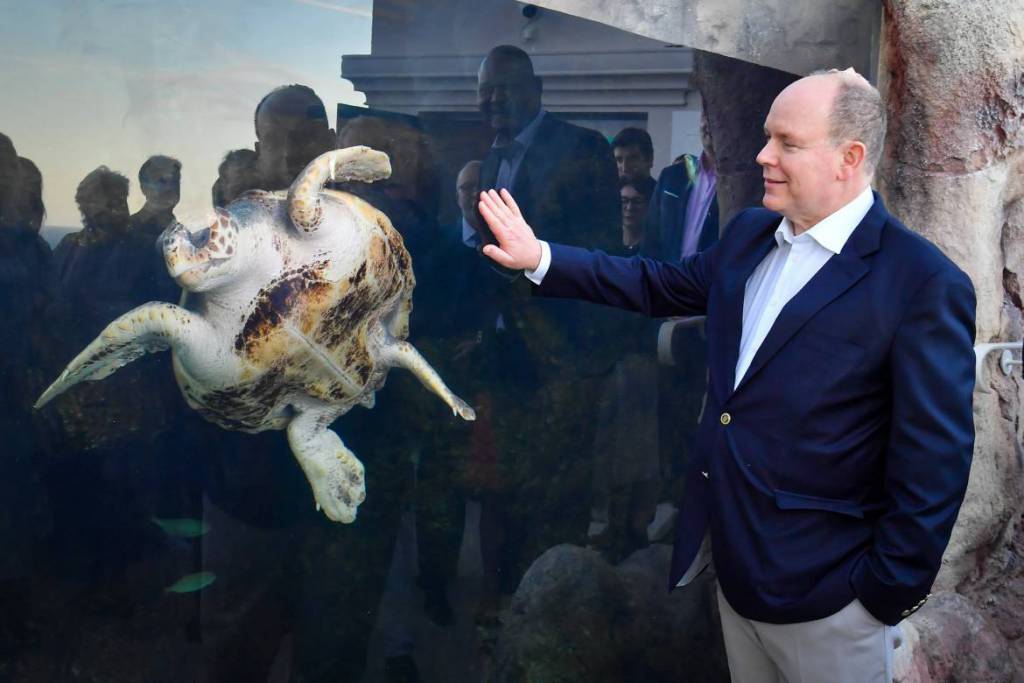
TB: Of course we’re here in the Oceanographic Museum. Your great, great grandfather, and namesake, Prince Albert the first founded this in 1910. What sort of legacy did he leave for you and how did he inspire the work that you’re doing?
PA: Well, in a tremendous way, obviously. I think the first time I visited this museum along with my parents and my sister Caroline, I was barely over two years old. And so I’ve been coming here all my life and just seeing what he was able to collect in all his expeditions around the world and he led some 28 different expeditions in the Mediterranean, in the Atlantic and in the Arctic Oceans. And he was a man of incredible vision, incredible foresight that he had, not only for the ocean and his love for the sea and navigation, but for the development of science and the furthering of our knowledge on different ecosystems even if that word didn’t exist back then and the need for not only marine, but also terrestrial areas that had to be better protected. Also, if you read his writings, he was the first to be concerned about the potential of overfishing back in 1903 when he wrote the first paper on this, that was unheard of, no one ever thought of over fishing though the ocean was a space of great abundance and the resources seemed unlimited until very recently it was deemed unlimited. His moral legacy is tremendous and that also inspired my father who loved the sea and was very instrumental in getting different programmes around the Mediterranean, underway. The marine mammal sanctuary, that’s between France, Monaco and Italy, the coastal agreement for the civilians of coastal waters, the Ramoge project also between France, Monaco and Italy, these types of the programmes he helped set up. And so that could only inspire me to continue in this vein and to see what better ways we can find to not only further our understanding of marine ecosystems and the crucial issues that concern our oceans. And of course, in the view that the things are unfortunately deteriorating very rapidly and there are new threats that have appeared that my great, great grandfather or my father could not foresee. And so I think it’s a collective effort. I’m just trying to play my part in drawing attention to the cause of oceans and their true value and their true importance in the overall earth systems. So I think we have to get everybody working together to absolutely find better ways, better solutions for global understanding of the importance of oceans and for better protection of the oceans.
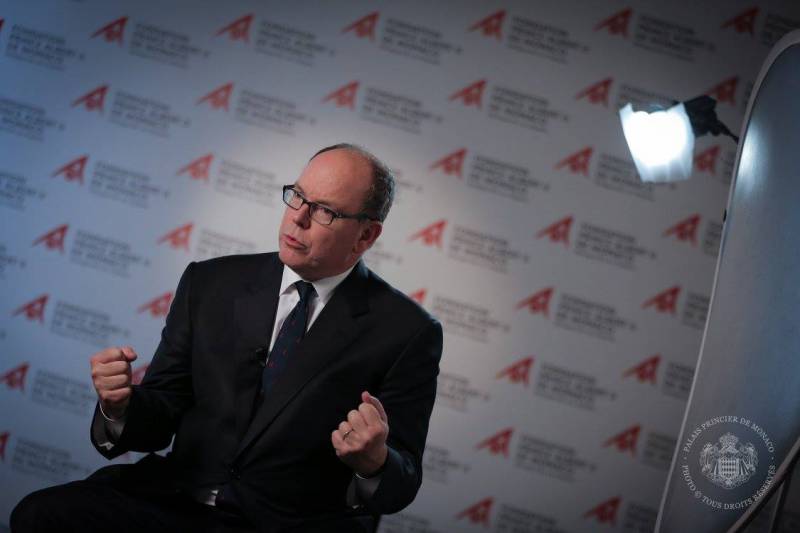
TB: Sir, you mentioned coming here to this museum when you were two years old with your parents and your sisters. What values did your parents instil in you as children?
PA: Well very early on, they did in a very subtle way sometimes, and a very matter of fact way, they pointed out different elements in nature, and that was also on walks. My mother loved to take us on walks in the mountains or the hills and she would point out different species that she identified, both fauna and flora. But then also, my father would… we went out on different boats and on different vessels, mostly in the summer. And he would point out different things that we needed to know about the Mediterranean Sea in particular, but about oceans as a whole.
So I think very early on, my sisters and I understood the value of nature and what it can do for us, and that we are part of nature. Even if we are all seemingly intelligent beings and we’re at the top of the food chain, that doesn’t mean that we have to remove ourselves from nature. We depend on nature to survive. Nature doesn’t really need us. They’ve evolved in different ways, and if man would disappear from the face of the Earth, the Earth would still continue. Maybe in different ways, but it would still continue. And so, we have to understand where our place is and how we can help since we have the tools at our disposal and we have our imagination and our knowledge and it is our responsibility also to take care of our home, planet Earth.
TB: Do you think growing up on the shores of the Mediterranean and having parents that were passionate about the environment, how do you think that has shaped you to who you are and what you are doing today?
PA: If I didn’t have that sensitivity toward our natural surroundings, but also on the value of nature, I don’t think I would have done what I’m doing. That concentration on environmental issues that I sensed was important comes from that history and from that family legacy. My father gave me this poster from National Geographic back in the very early ’70s, so I was a young teenager, but it showed how man polluted his world. And the issues that they talked about whether it was water pollution, air or terrestrial, the issues that they talk about on this poster are still very much present today. So we haven’t really in almost 50 years, found the right solutions to counter these threats.
And so, that spoke volumes to me. And personally, that’s why I also, along with different expeditions that I was able to do to the North and South Poles, to engage more personally and to create a foundation that would better address these issues, and that’s what I did in 2006. And the foundation now, after funding almost 450 projects in 60 different countries with 100 or more partners around the world, has I think found its place and found its purpose.
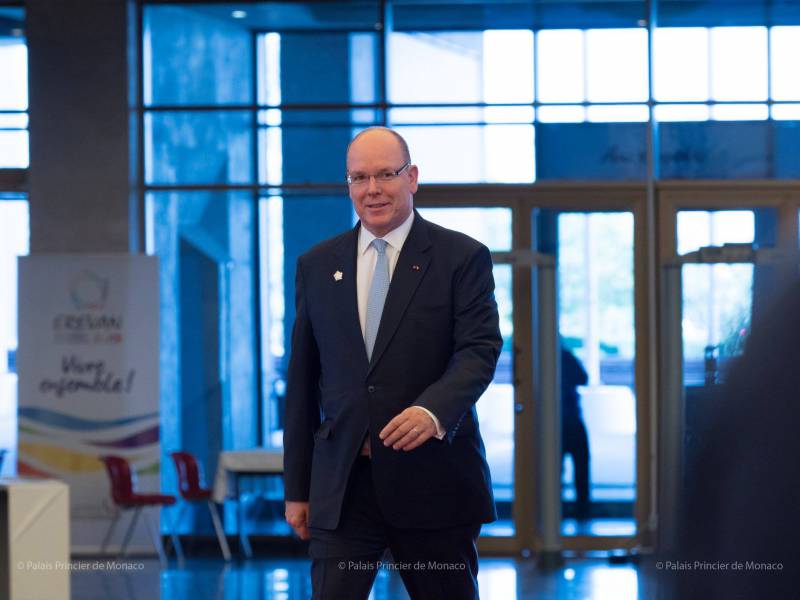
TB: As you’ve mentioned, 2006, you went to the North Pole. 2009, you went to the South Pole. The only head of state to ever do that. Where did you get that passion from, do you think? We talked about the values your parents taught you. Do you think the fact they came from different cultures? You lived in America, you studied there. You also were an Olympian. Do you think all of those experiences helped you do what you are doing today?
PA: Of course, they all contributed to that. But I think it was the fact that I was able to meet different scientists and different environmentalists, and people concerned with the state of our world, that I was able to form my own opinion and to sense really that degree of urgency that is upon us, and has been for quite a while, and the window in which we should act is closing up on us very, very rapidly.
So I think we have to be concerned, and we have to keep these issues at the top of the international agenda. I just hope that more heads of state or heads of government can put the right policies in place so that we can move in the right direction.
TB: Your message to the world leaders, you had President Xi visit you… What would your message be?
PA: China‘s efforts in finding solutions, and they have, as you know, tremendous problems with air and water pollution. They have understood the importance of oceans and they have understood the importance of putting in the right measures to mitigate, not only climate change, but also the tremendous effects of pollution due to their development. They are very aware of this and they want to play their part in the international community, and I think that that should be welcomed.
But I think the very simple message from Monaco for this Ocean Week and from our Monaco Blue Initiative Conference is that the oceans are suffering, but we have the means, and we have the people that want to do something and want to find the solutions, be they legally, be they technically, be they technologically. We have everything at our disposal to make a difference right now, and so if a message comes from one of the smaller countries in the world, you’ll say, “Well, that doesn’t have much of a voice,” but I think every voice counts. We all share the same destiny on the same planet, and so if one voice speaks out, hopefully others will join and it’ll be a much bigger voice when we’re all together.
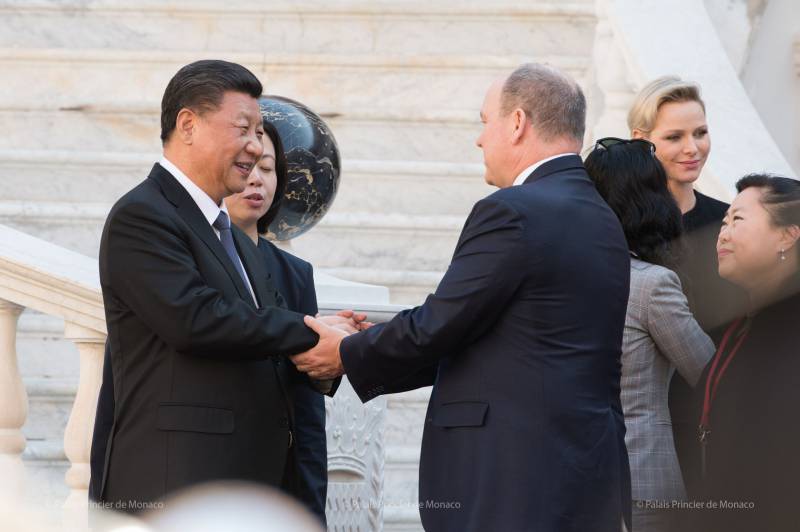
TB: How important do you think it is, sir, to mentor the next generation, and what values would you like to give them?
PA: Well, I just met with a group of Monaco school kids that had this project of creating a marine educational area. It’s right at the bottom of the cliffs, just under the museum here. They’ve really taken this project very much to heart, and to see the passion with which they talk about it and what they’ve been able to do already to identify different species there to identify both marine and terrestrial, they really took hold of this project, they now own it and to see the passion which they can talk about it, in very eloquent terms for eight-year-olds, to say that they take ownership of this and it’s their responsibility. That’s a great sign of hope. That’s half the battle right there. They will be in charge in a few years and they will be in positions of responsibility where they will be able to take more effective action. And so if we are able to instil that in their hearts and minds now, the future will look brighter.
TB: Talking of the next generation, what would you like to instil in Prince Jacques and Princess Gabriella?
PA: I think my kids, although they’re only four years old, they’re very in touch with their natural surroundings. The fact also that we have a property outside of Monaco, up on the mountain, where we have a farm, and we have a beautiful vegetable garden there too, so we’re able to teach them what it means to grow your own food, your own vegetables, and to be able to pet different farm animals. I hope that they will continue to want to know more about nature and about how this world really works and what beautiful things and beautiful resources that it offers.
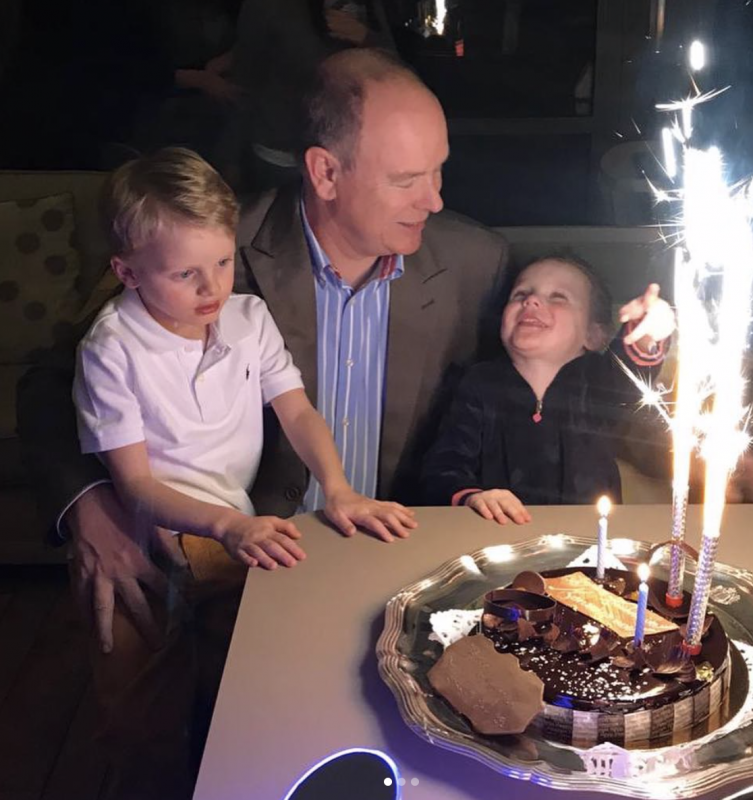
TB: Just finally sir, your great-great-grandfather was known as Prince of the Seas. You’ve been called the Green Prince. What would you like your legacy to be?
PA: I hope it’s a little too early to talk about that (laughs). I just hope that I will be able to be remembered as someone who tried his best to make his contemporaries aware of what we’re doing and the damages that we are inflicting on our world. No one can act alone. We have to act all together. And if we don’t act all together, at different levels of society, then it simply will not work. Every gesture that we do to be more sustainable and to be more careful and mindful of our natural environment will help. If billions of people do that same gesture, not necessarily at the same time, but if they do it, and if they find ways to live in a more sustainable way, then we will be able to have a brighter and safer and better future for all of us, and for the generations that will be following us.
TB: Your Serene Highness, thank you so much for your time today.
HelloMonaco expresses its sincere gratitude to CNBC for sharing this very interesting interview.

